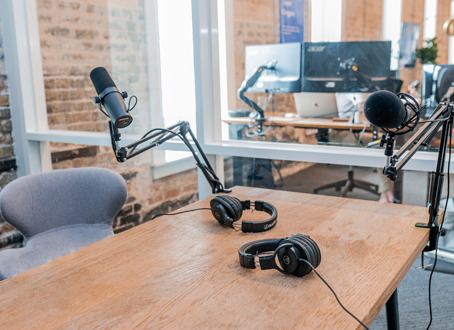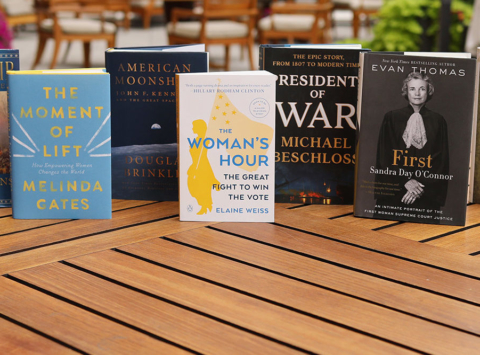In our journey to Be Fearless and champion a fearless approach to tackling social challenges, the Case Foundation will spotlight leading changemakers across sectors that have embraced fearlessness. Our spotlights will provide personal accounts of why these changemakers adopted a fearless approach, how they overcame hurdles, and how taking risks, being bold, and failing forward led to quicker results and deeper impact.
This Fearless Focus is on Barbara Van Dahlen, Ph.D., Founder & President of Give an Hour™, a national nonprofit organization that provides free mental health care to our returning troops, their families, and their communities. Barbara was recently named to the TIME 100 list for her efforts in creating and leading Give an Hour to help fill a critical need for mental health services for our nation’s military. Admiral Mike Mullen shared more about Barbara’s fearless work with TIME:
“Through her organization, Give an Hour, she has mobilized thousands of mental-health professionals to volunteer countless hours of counseling for those in need, at a time when there is a critical shortfall in the military and throughout our country.
Barbara has tenaciously attacked the epidemic of posttraumatic stress disorder, helping break through the stigma that prevents many from seeking help. She has also created an opportunity for many who have not served in uniform to make a difference.
Barbara cares for people and is dedicated to making their lives better. She has served thousands nobly and has been an extraordinary example for all of us in her life and her giving.”
I am the president and founder of Give an Hour and a licensed clinical psychologist. I am also the mother of two girls who will inherit the world that I leave behind.
There are many social issues, both local and global, that require our attention. Some appear more urgent than others, but all result in suffering and should, therefore, concern us. In order to successfully address any one of these issues we must be determined, resourceful, and yes, we must be fearless. We must be willing to face rejection of our ideas-not once but repeatedly. We must be able to withstand uncertainty, doubt, and disappointment-for if the tasks were easy, others would have accomplished them long ago. And we must tolerate the limitations of others and ourselves-for if any of us were perfect, social issues like the ones that burden our communities (poverty, illiteracy, homelessness, hunger) would be rare occurrences indeed.
My father taught me to be fearless. He was a World War II veteran. He served in the Navy in the Pacific. He fought in battles, he was injured, and he never talked about it. But he did talk about honor and integrity and service. He raised four children, for many years by himself. He taught by example, and he never took the easy way out. He followed his principles, and he encouraged his children to follow theirs even if they differed from his. He valued honesty and directness, and he always spoke up when he saw an injustice. I learned how to accept adversity – and how to appreciate my accomplishments – from my dad. I admired his compassion and selflessness, and I learned that if you find your passion and you focus on a mission that is greater than yourself, being fearless sort of comes with the territory.
Two years ago our organization faced a crossroads. No one on staff (other than my vice president, who has been my trusted partner from the beginning) knew about the crisis. We had expected to receive continued funding from a major sponsor, but a decision that had nothing to do with us changed their funding priorities. It was a very uncertain and difficult time. I worried about our staff members, their families, and our mission. Rather than allow our fear to paralyze us, we developed a plan to save our organization and its mission-even if it meant turning over the reins of GAH to another organization. Fortunately, the head of the foundation that had provided our funding, with whom I had a wonderful relationship, championed our cause and secured a chunk of funding to help us during the transition. No one was laid off, and no programs suffered. Within a few months we had several additional funding streams in place, and Give an Hour has continued to expand ever since.
Launching and growing a nonprofit organization in the current climate within our country is very difficult indeed. But it isn’t impossible. Funders want to support good programs. It is important that nonprofits provide a quality “product.” It is critical that we engage in best practices when we can find them-and create them when they don’t exist. If we are successful in accomplishing this, then foundations and corporations will support our critical efforts. In our case our funder was so pleased with what we had accomplished with their generous financial gift that he stepped up to ensure that we had the funding we needed to continue our mission.





